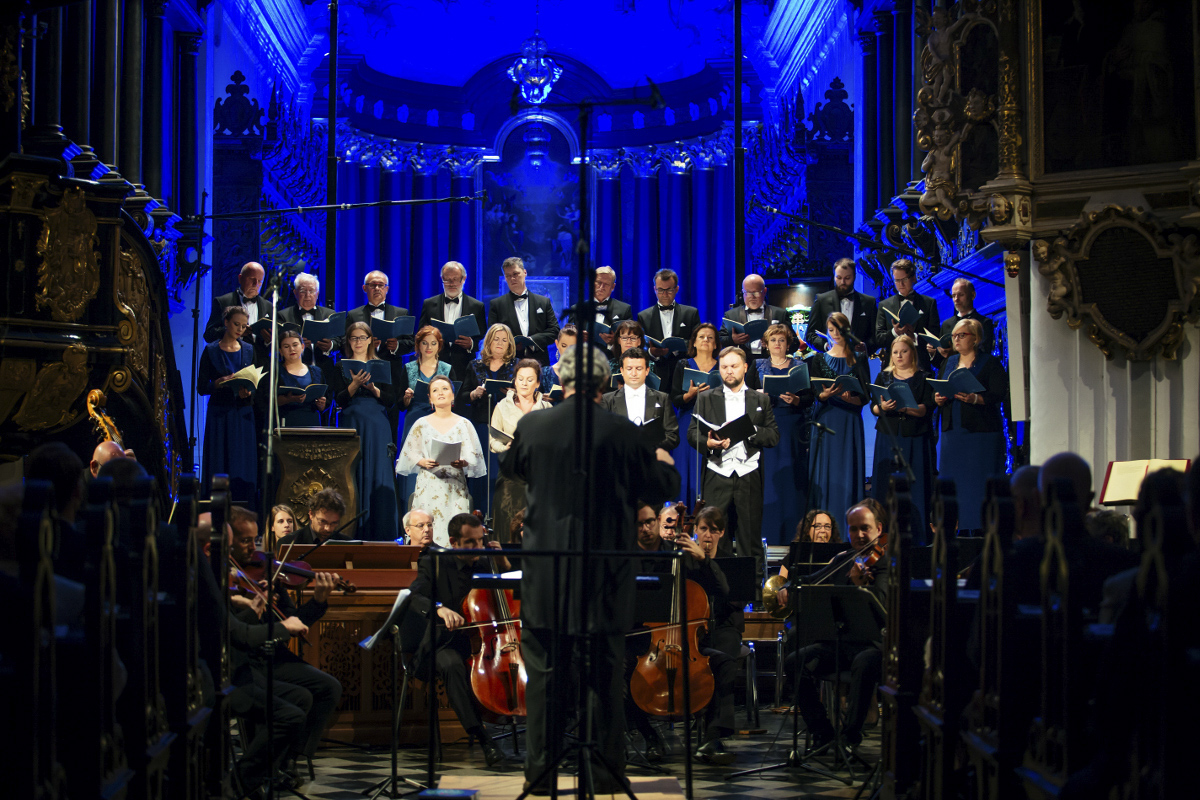We invite you to listen to a fragment of the final concert of the 13th International Mozartiana Festival 2018
“He raiseth up the poor out of the dust, and lifteth the needy out of the dunghill; That he may set him with princes, even with the princes of his people,” sings the choir in Laudate pueri Dominum.
Don’t we need such hope right now?
Programme:
Wolfgang Amadeusz Mozart -Vesperae solennes de confessore KV 339
Performed by:
Julia Lezhneva – soprano
Ewa Marciniec – alto
Krystian Krzeszowiak – tenor
Wojtek Gierlach – basso
Polski Chór Kameralny
Wenecka Orkiestra Barokowa
Jan Łukaszewski – conductor
Recording produced by: Andrzej Solczak /Program 2 Polskiego Radia
Photos: Renata Dąbrowska
Film editor: 2Pi Group
We do not know what occasion these two vespers cycles were written for. The later one, dated at 1780, includes the term solennes in its title, which emphasises the music’s ceremonial nature. The music is radiant with an orchestra that includes three trombones, two timpani and two trumpets (though without woodwinds). The word confessore indicates that the vespers were dedicated to a patron saint who was a confessor, or follower, venerated because of his holy life, rather than because of dying for his faith in Christ like the martyrs did.
The piece we would like to present to you is a tour-de-force of compositional ingenuity. The individual movements are in different keys, scored for different performers and in different styles. The instrumentation also changes. The sumptuousness of the sound rouses the listener in the choral interludes, with spectacular coloraturas and charming lyricism in the solos. At times, the Dixit that begins the Vesperae in ¾ time sounds almost like a dance, the concluding Magnificat is not unlike an opera finale. The Vespers fifth psalm, i.e. Laudate Dominum, sung by a soprano and choir, would go on to become one of the best known pieces of sacred music (and the combination of a female soloist’s voice with the soft sound of a choir was a trademark of 19th-cenury bel canto).
